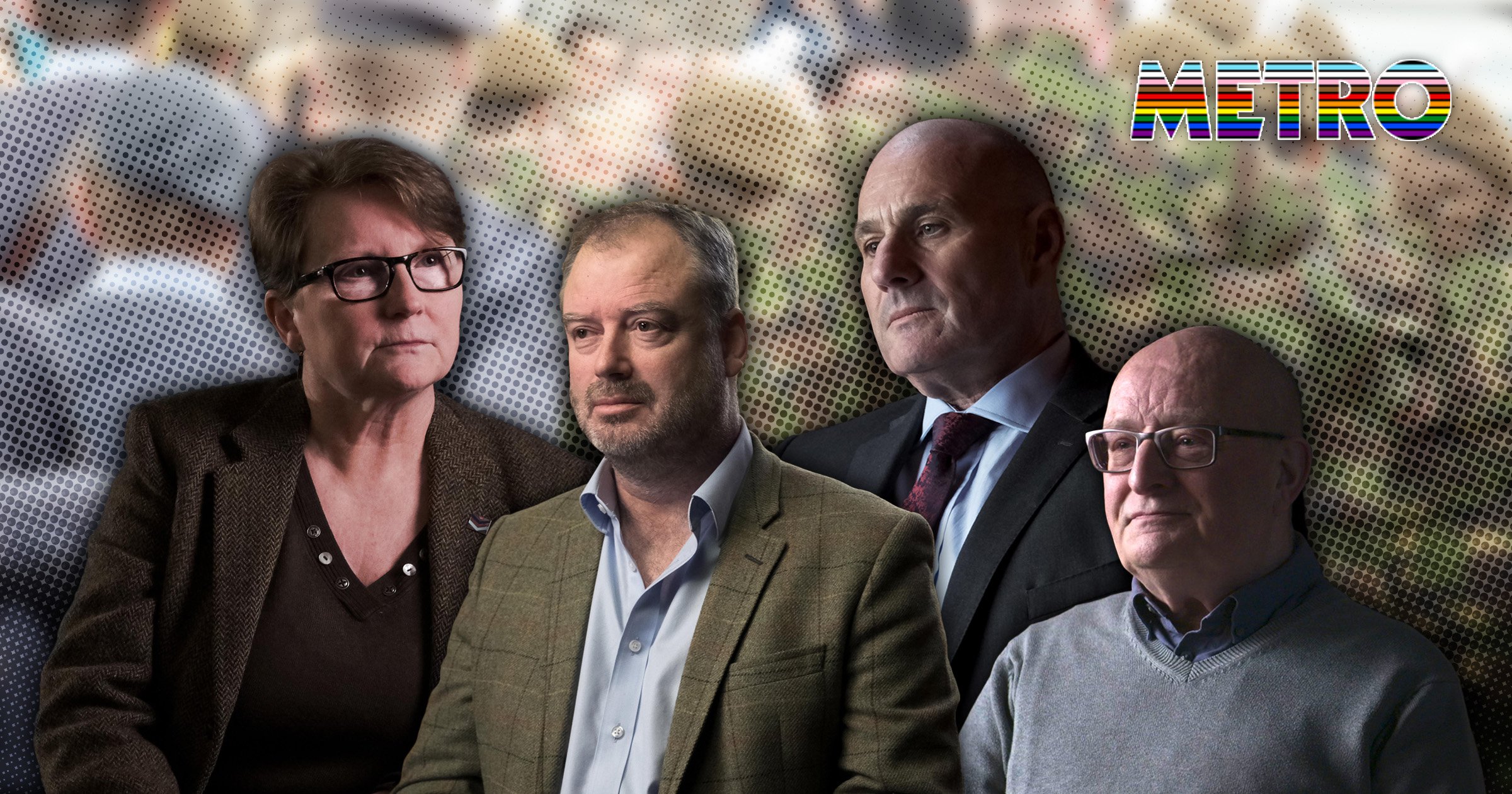
Every June, Month sees people around the world celebrate the + community, with jubilant and performances taking place across the globe, awash with bright colours and rainbow flags galore.
However, it’s important to remember that , but also a commemoration to honour the difficult journeys that LGBT+ people have gone through in the past, and to remember the prejudices that many continue to face to this day.
Sky documentary Forced Out weaves together heartbreaking stories of men and women who were dishonourably discharged from the armed forces in the UK after it was discovered that they were LGBT+, before the– which meant that it was – was finally overturned in 2000.
Metro.co.uk spoke to four of the contributors on the film, who had to face their possessions being rifled through in intrusive investigations, being made to answer invasive questions about their personal lives and being kicked out from positions that meant the world to them.
, who worked as a nurse in the British army from 1982 to 1988, explains in the film that the moment that she knew that she wanted to join the army at the age of 13 was also when she realised that she was attracted to women, having watched an episode of a TV programme where two female soldiers share a kiss.
In the documentary, she recalls a ‘beautiful, erotic, moving and explosive’ moment that she shared with another woman in her intake when they were alone and kissed, leading her to ‘understanding who I absolutely was’.
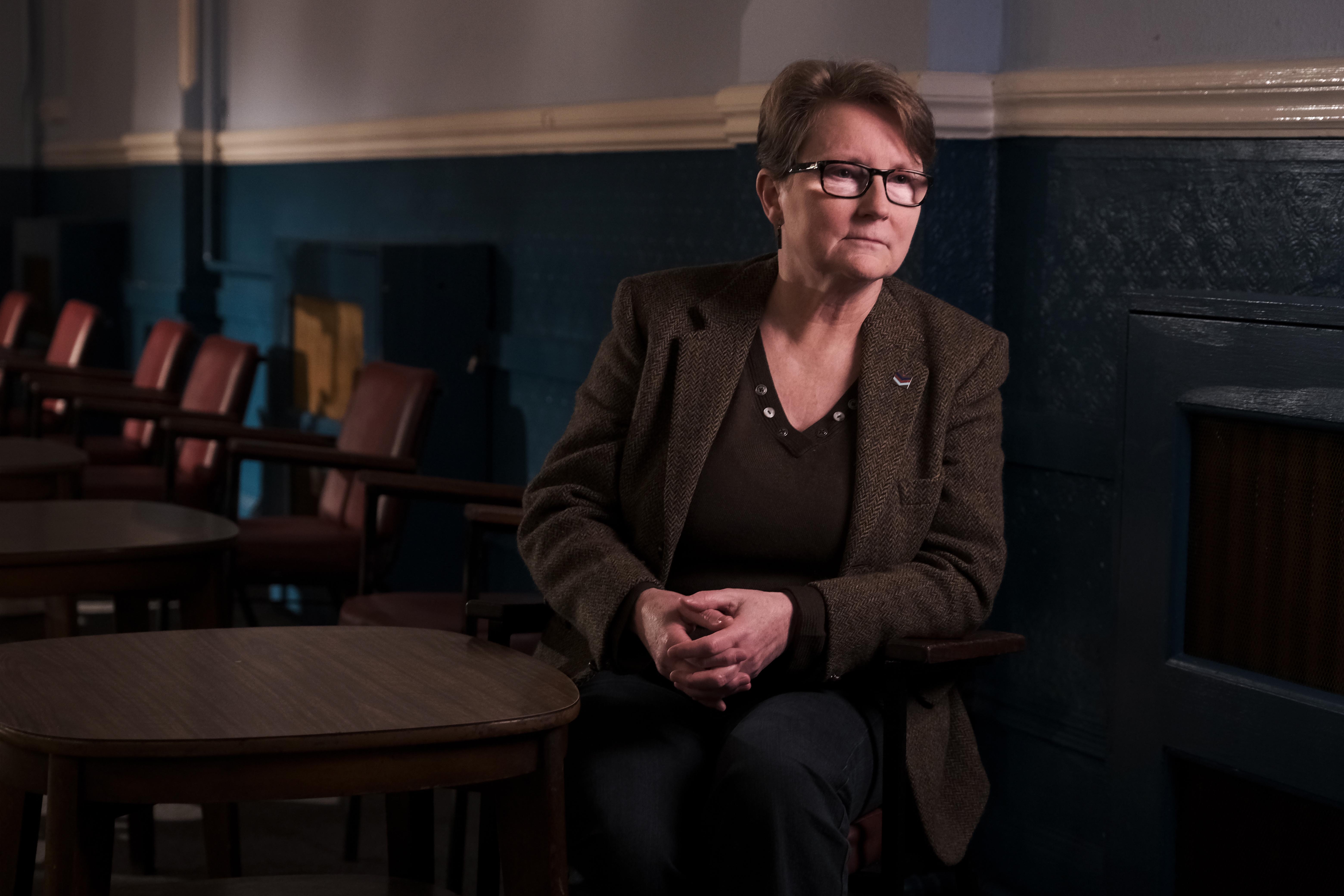
Pride Month 2023
Pride Month is here, with members of the LGBTQ+ community and their allies celebrating their identities, accomplishments, and reflecting on the struggle for equality throughout June.
This year, Metro.co.uk is exploring the theme of, and what it means to the LGBTQ+ community.
Find our daily highlights below, and for our latest LGBTQ+coverage, .
However, in 1987, Elaine was subjected to false allegations of making ‘unwanted advances’ on two female nurses, claims that she strenuously denied – and she had to endure the military police literally going through her ‘dirty laundry’ before she confirmed her sexual orientation to them in an interrogation.
While the military police concluded that they couldn’t charge Elaine with the untrue accusations of ‘unwanted advances’ – they’re then said to have turned their attention to other people who could have been identified as LGBT+ from her diaries and letters.
Elaine told Metro.co.uk: ‘People talk about the term witch-hunt – and as we all know, it’s been used recently by certain people – and that makes my blood boil, because I think excuse me pal, if you want to know about a real witch-hunt, you just need to look no further than many of we LGBT military personnel who signed up to serve the country willingly and risk our lives, and yet we were being destroyed for who we were and we were being actively sought out.’
She continued: ‘It was a witch-hunt. It’s not an exaggerated term at all. Because I know that my letters and diaries led to other people who were not involved in those cases against me in any way. Two friends in particular, one had served for 18 years, the other for 21 years with the highest level of security clearance, both of them with exemplary records devoted to the military, and because of letters, they were investigated and they were sacked.
‘I had to carry that guilt with me for years, I felt guilty because I’d kept a letter or a diary, and people have to remember this is pre-social media era. The way we communicated was the old fashioned letters. Most of us had letters galore in our possession and why shouldn’t we? They belong to us and they should have been private property.’
Elaine added that if any of her ‘transgressions’ had been with a man, then she would not have been sacked. ‘It’s that simple,’ she said, stressing how ‘proud’ she’d been to receive her commission in the army when she became an officer after being trained by military personnel to become a nurse.
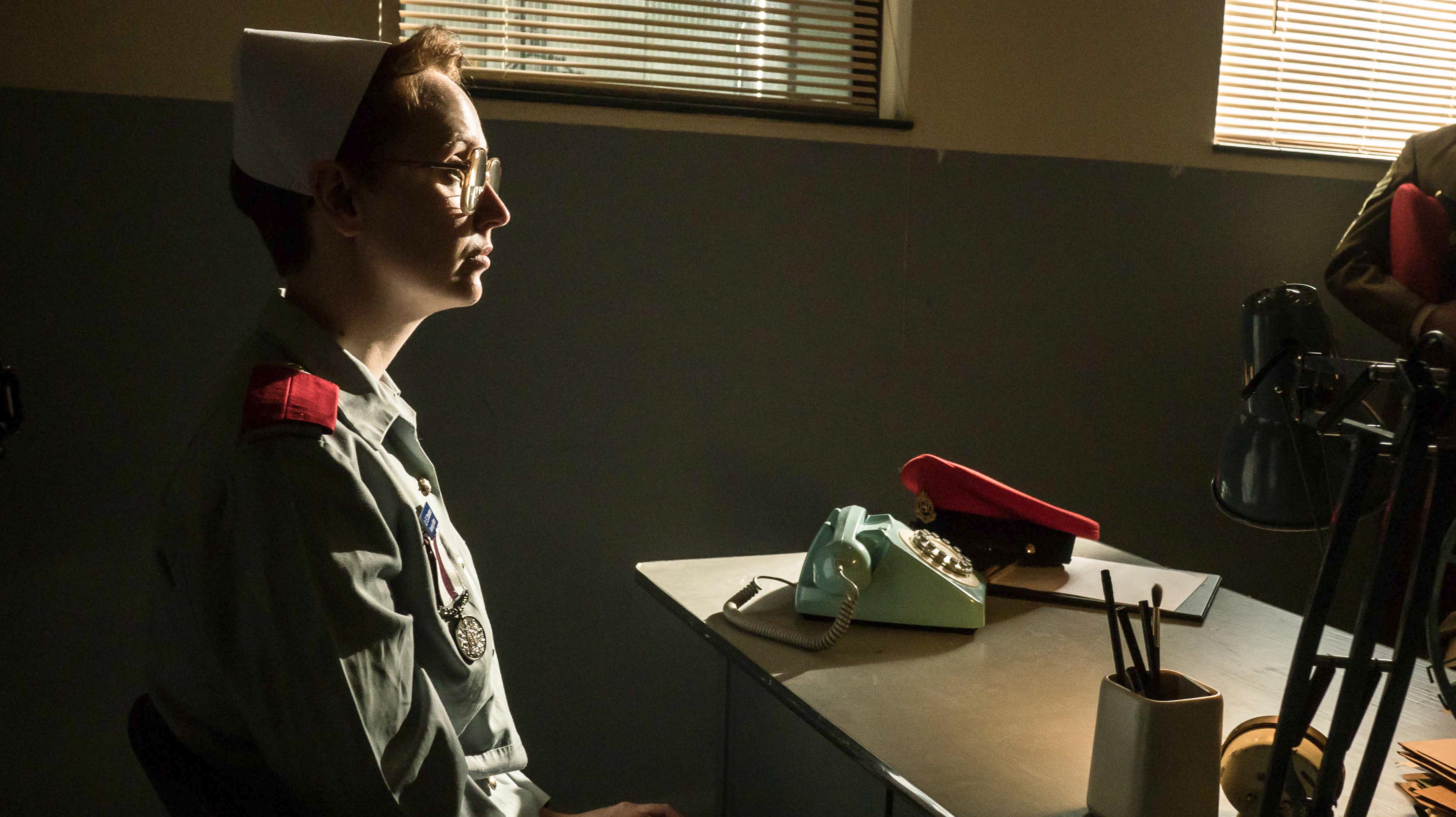
After being ousted out of the army due to the ban, Elaine made an important connection with Robert Ely, who had been a bandmaster in the British army for 20 years from 1966 to 1986 before his sexuality, which he had gone to great lengths to conceal, was uncovered.
Remembering the investigation that was conducted at his personal house when he was discovered, Robert told us: ‘When they said why they were there, suddenly this huge black cloud came over me. I don’t think it’s actually said in this documentary, but I was actually in my dressing gown when they arrived, because I was going away that day.
‘I said, “Before we discuss this, do you mind if I go and get dressed?” I went upstairs into the bathroom and I just looked in the mirror. I said to myself, “Well, that’s the end of that.” That was the beginning of the end as far as I was concerned. It’s a bit cloudy after that. Taken away, interrogated… luckily for me, because of my rank. I wasn’t officially imprisoned as it were. If I’d have been a junior, that could’ve happened.’
Recollecting how his career was ‘destroyed’, Robert detailed how none of his family had known about his sexuality when he was forced out of the army at the prime of his career at 36 years old.
‘Literally overnight, I had no career and I hadn’t planned on leaving. As far as the army was concerned, I was doing very well and all being well, I would have been commissioned that year and gone through the officer ranks as well. All my reports suggested I was going to go right to the top of the job pile for that particular career, but it never happened.’
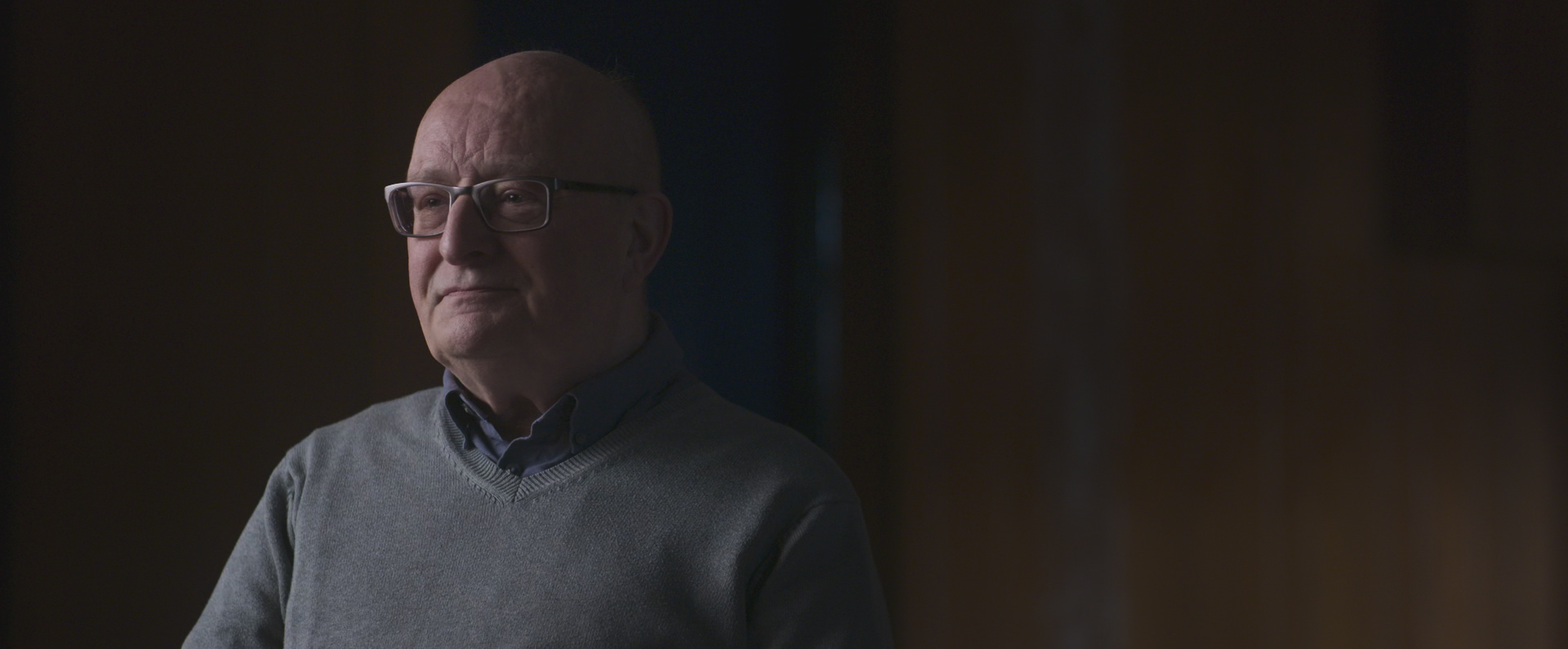
After being made to leave the army, fortunately Robert and Elaine found each other in the outside world, forming a campaign group called Rank Outsiders. Their first meeting came via a telephone call, after Robert – who had been feeling ‘isolated and lonely’ – distributed his phone number in the gay press in the hope that someone who was going through similar circumstances as him would reach out. Luckily, Elaine did.
‘Elaine rang and we ended up talking for about three hours or something. I think for both of us, it was the first time we’d actually spoken to somebody who knew what it felt like, and from there we arranged to meet up. The rest is history,’ Robert shared, while Elaine described that first phone call as ‘cathartic’. The pair felt as though they’d known each other for years when they met in person for the first time in London.
The aim of Rank Outsiders was to campaign for gay men and lesbians to be allowed to serve in the British armed forces, in direct opposition to the ban that was still in effect. Their strenuous campaigning – which eventually did lead to the ban being lifted, despite significant setbacks in court – also resulted in them joining forces with Duncan Lustig-Prean and Ed Hall.
The members of Rank Outsiders met Ed when they were carrying a banner at the Pride parade of 1993, which they’d paid for at ‘great expense’ in the hope that they could raise awareness about the ‘gay ban’ in the armed forces, which not many people knew about.
Ed had been in the royal navy from 1986 to 1988, and was sacked because he informed the navy that he was gay, after leading what he described as a ‘complicated’ and ‘double’ life. When he was forced out of his position, Ed wanted to know where the ban had come from in the first place.
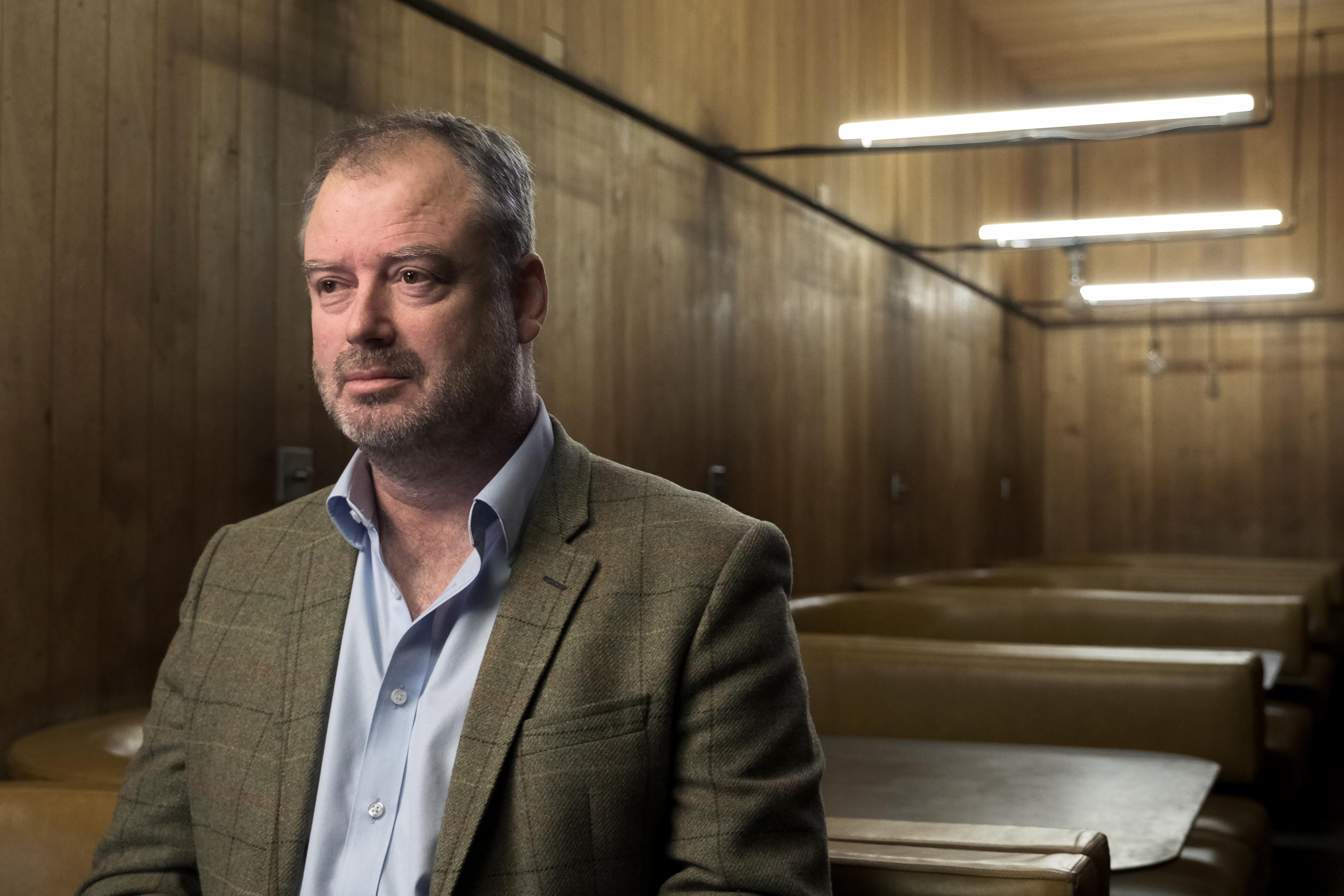
When asked about what he endured when he faced questioning, Ed told Metro.co.uk: ‘You block out some of the memories. But I suppose people who have been through deeply traumatic experiences often say that’s something that happens, isn’t it?’
Ed detailed what transpired during his police questioning after he’d already confirmed to them that he was gay, when he was asked horrendously intrusive questions about his sex life.
‘There were two days of questions about, “How did you have sex? Who did what, to whom? With which fingers? With which bits of your body did you touch this? Who penetrated who? How?” Questions of an intimate nature that I still find embarrassing to think that I answered them. But you’re in an environment where you kind of do what you’re told.
‘When you read accounts of the trauma that rape victims have gone through in police questioning, I can empathise with that, because I’ve sat and been asked, “Which finger was inserted into your anus?” and all those kinds of questions.’
‘It was horrendous,’ he added. ‘Those two days in Portsmouth were horrific, really.’
Speaking in the documentary about his dedication to the legal campaign, he explained that it was ‘in the law in the armed forces discipline acts’, with research backed by ‘pages of confidential and restricted documents’, which included phrases such as saying that the ‘removal of homosexuals was of vital importance’, and words including ‘sexual deviants’, ‘disgusting’, ‘infamous and ‘immoral’.
Having drawn the conclusion that they needed to fight to change the law, challenging the Ministry of Defence, Rank Outsiders spoke to Stonewall director Angela Mason, who in turn led to them enlisting the help of human rights lawyer David Pannick.
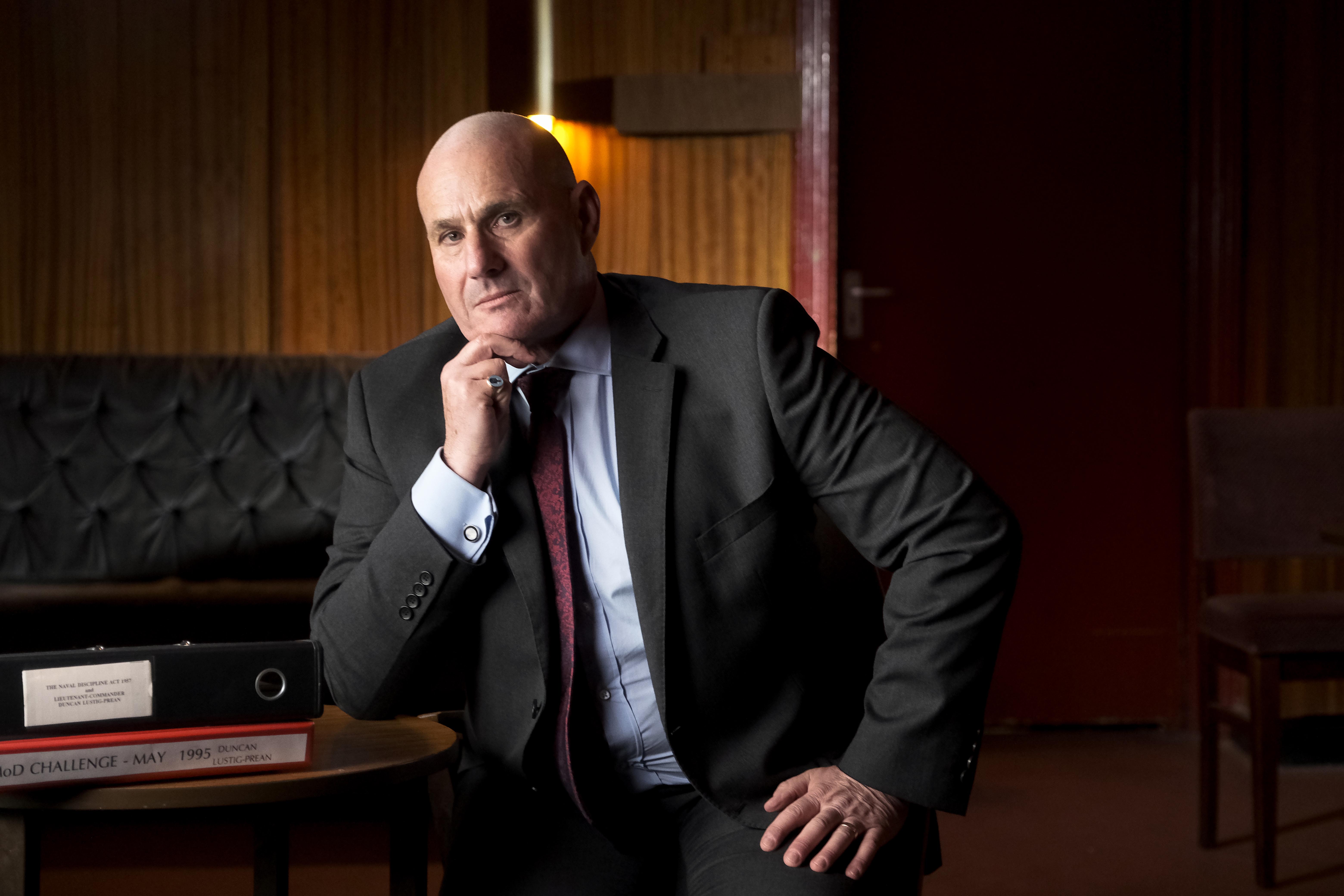
David detailed that they needed four test cases to put forward, and in each instance needed to ensure that ‘nothing could establish that their sexual orientation had any effect on their record’. One of those people was Duncan Lustig-Prean, who served in the royal navy from 1979 to 1994 and rose through the ranks as a sailor to lieutenant commander.
One day when he was still in the navy, Duncan was informed that someone had been asking for him to ring them repeatedly, but not from the ship. When he called the mysterious individual from a phone box, the person said that they knew about his ‘double life’. Having travelled from Portsmouth, Duncan met the man in London, where he was told: ‘I know that you’re gay. If you make it worth my while, I’ll keep quiet about it.’
Talking in the film, Duncan said: ‘Although I’d loved my career, there was no way that I was going to be blackmailed. I said to him, “You can f**k off, because before you get anywhere near the military police, I will have told them about this conversation.”’ That’s what he did, and Duncan was dismissed from the royal navy shortly before being chosen as a test case by Rank Outsiders.
Transitioning to the civilian world after serving in the royal navy proved a massive culture shift, Duncan told Metro.co.uk, especially as typically when one left the services, they’d have 18 months of resettlement training, he shared.
‘My reading of politics in the civilian world was very different. I come from an environment where even if I didn’t particularly like the person that I was sitting next to, I knew that I could trust them to take a bullet for me, and they knew that I would take a bullet for them. What took me years to understand was that very often in the civilian world, that knife in your back came from your colleague. It was a difficult transition.’
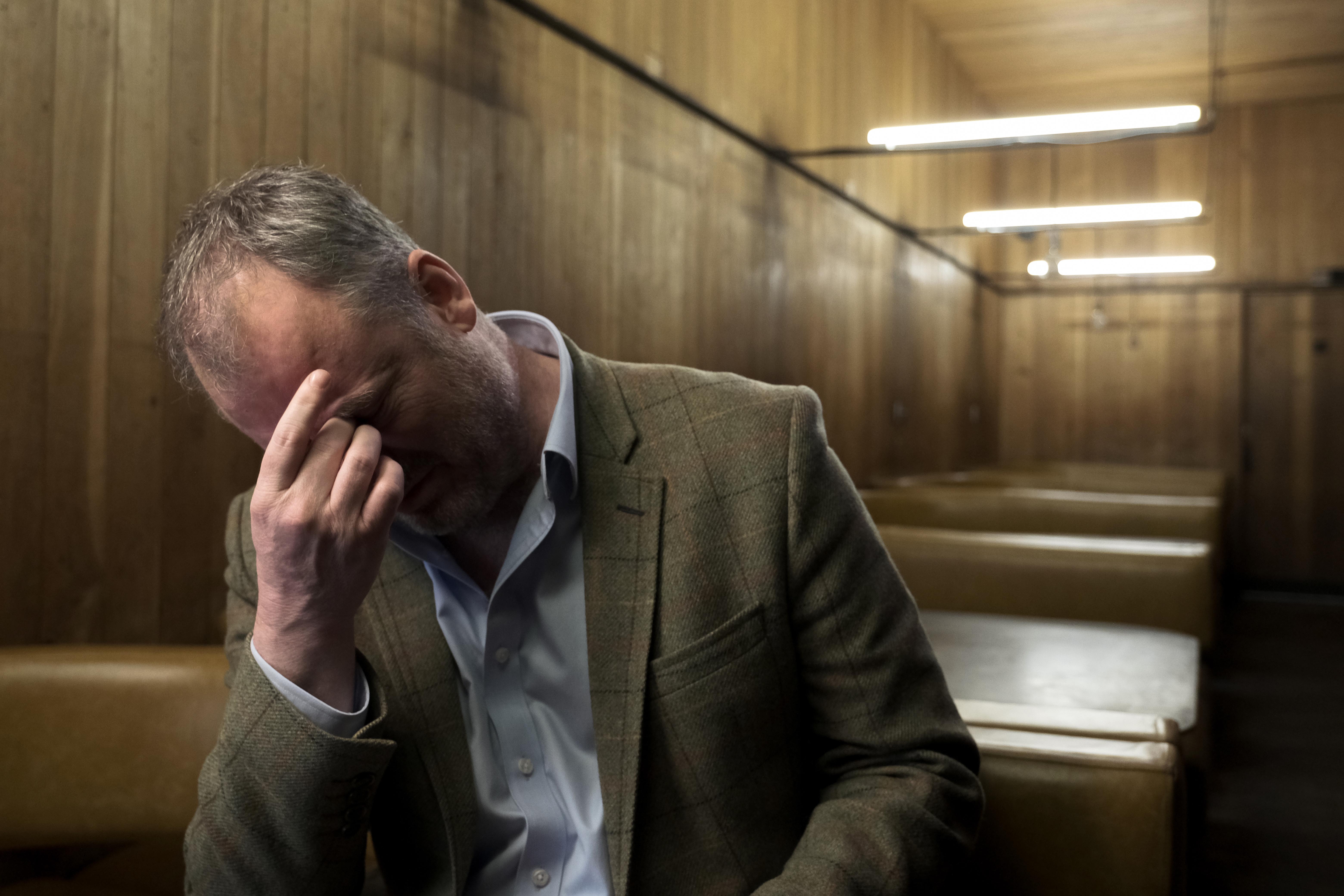
Despite having a strong argument that the armed forces had no right to dismiss people due to their sexual orientation, Rank Outsiders’ campaign was not successful at the beginning of their legal challenge to outlaw the ban.
The legal challenge was brought to the High Court. ‘The Ministry of Defence had numerous barristers, solicitors. We just had a tiny team and very meagre resources,’ Duncan recollected in the film. ‘We were really fighting against the odds.’
When the verdict was announced, it sounded as though the decision would be made in favour of Rank Outsiders… before Lord Justice Simon Brown said ‘with regret’ that he ‘couldn’t do anything’ about the ban, David said in the documentary, in a crushing moment for the team.
But they weren’t going to give up, striving to ensure that the ban remained in the press and that their campaign continued to put pressure on the government. A report also highlighted extremely hostile attitudes within the armed forces at the time towards LGBT+ people within their ranks.
A second battle was waged against Parliament, when a review of the armed forces’ discipline acts took place. The campaign group were hoping that the MPs would decide that the ban was out of date and needed to be outlawed by the select committee, but their hopes were dashed.
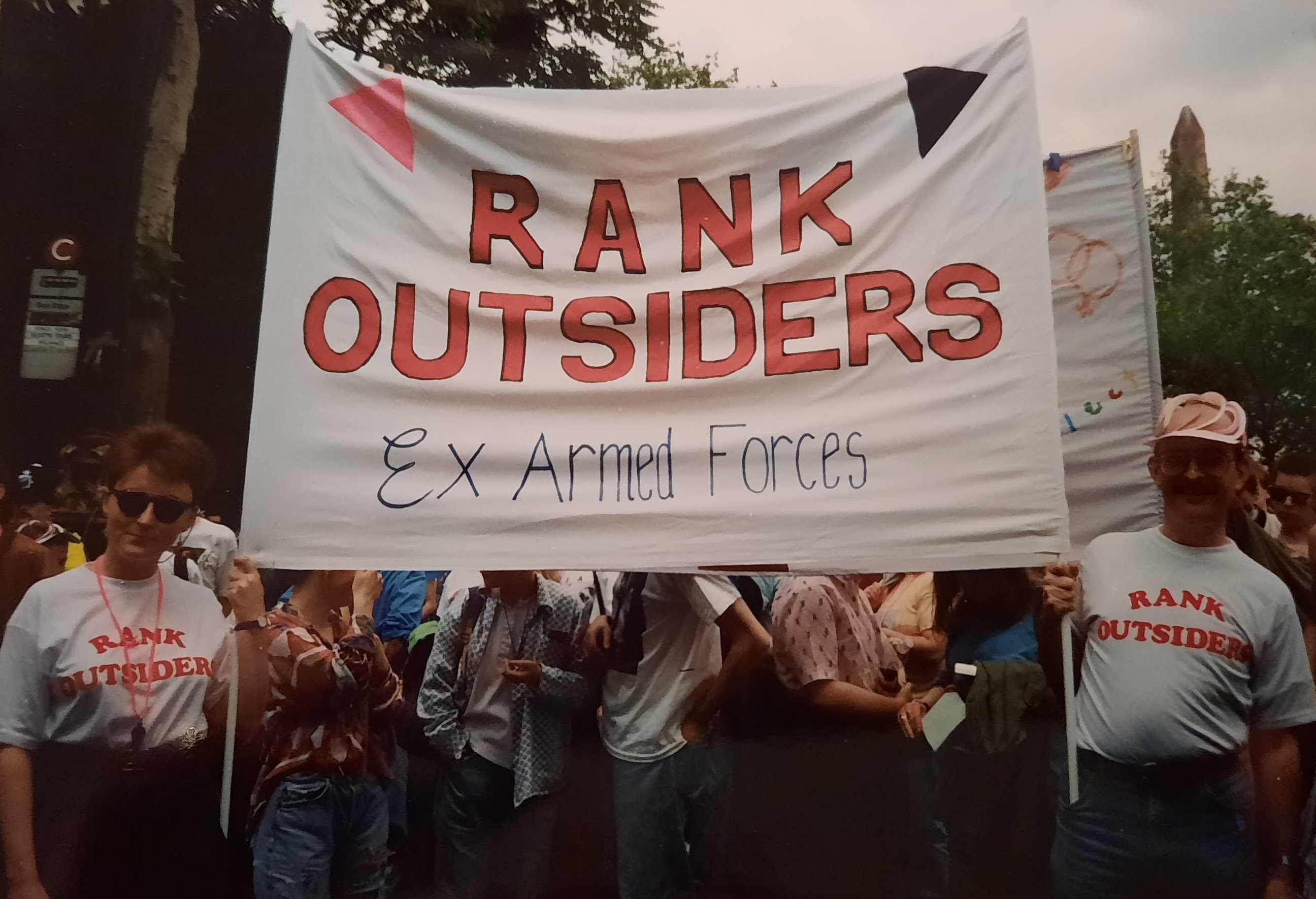
Speaking to Metro.co.uk, Ed remembered the moment of realisation that ‘there was nothing else we could do domestically’, having thought that after the Labour Party was elected in 1997, that the government would ‘simply lift the ban’, after he received personal assurances from members of the Labour Party that would happen… but didn’t.
‘There were no other weapons left in our armoury. We’d done everything we could to overturn it within the UK, and so the only weapon left was the European Court of Human Rights and we had no idea how long it was going to take to get the hearing there,’ he said.
Finally, the campaign group achieved success at the European Court of Human Rights in Strasbourg, France. After eight years of rejection, the judges of the court ruled in their favour to overturn the ban.
In the film, Robert recalled turning to Elaine when they learnt of their victory via a fax and saying: ‘So we can change it to Rank Insiders now.’
Elaine told Metro.co.uk that she’s since met young people joining the armed forces who are transgender and those who are ‘across the spectrum’ of sexualities, some of whom didn’t even know that there ever was a ban.
Duncan said that while it would be ‘naive’ to suggest that there wouldn’t be some homophobia and transphobia within army units given the ‘wide demographic of people in the armed services’, the armed forces have ‘done immense work’ to improve and change attitudes. In 2015, the royal navy, the British army and the RAF .
In January 2022, it was announced that an independent review was being carried out by the government to investigate the impact that the ban had on LGBT+ members of the armed forces. Expressing his hopes for the outcome of the review, Duncan – who’s been an adviser to the chair of the review Lord Etherton throughout the process – said that he’s wishing for a ‘genuine apology’ at the highest ranks.
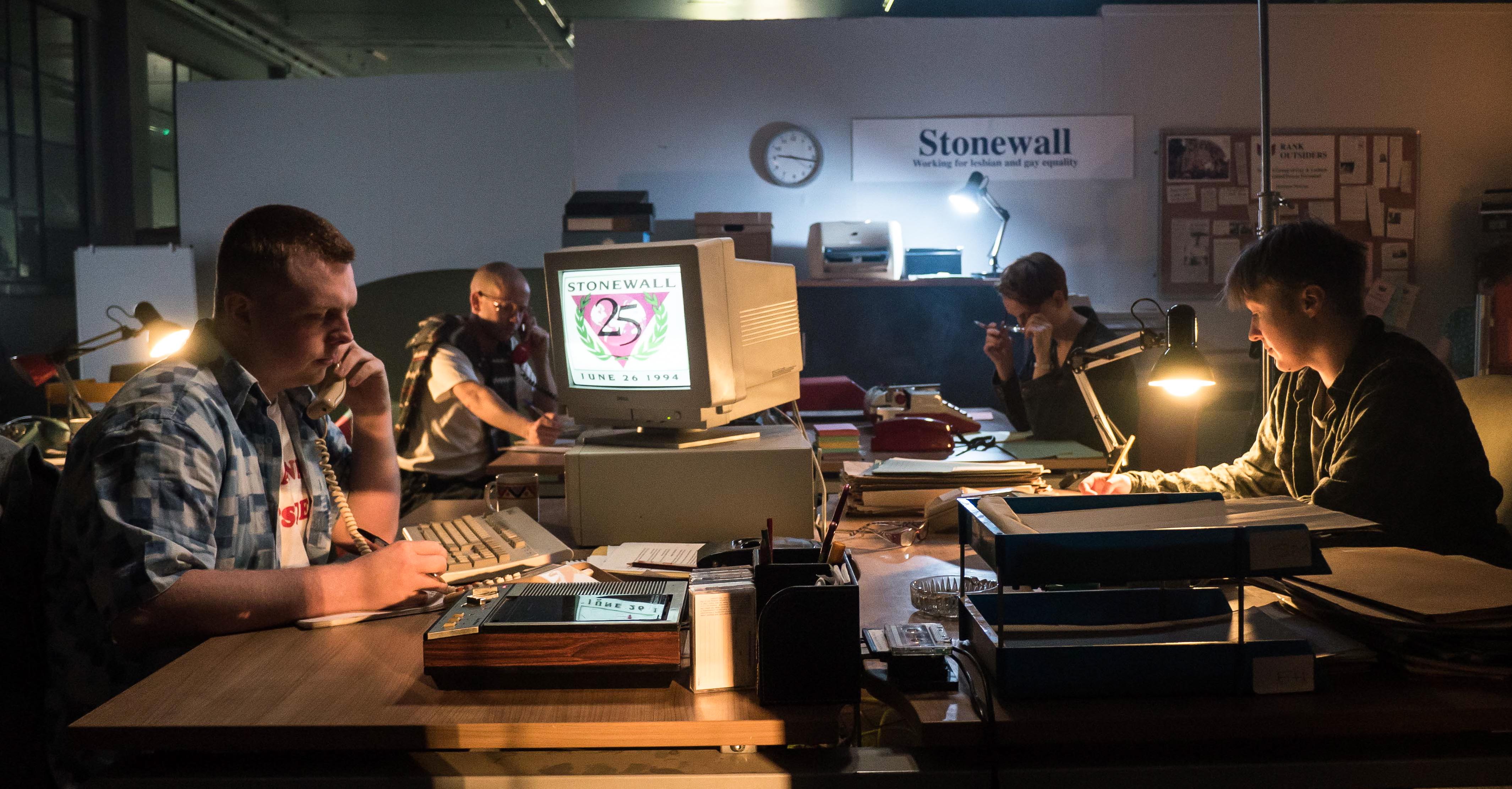
‘First of all, I think that putting this right starts with a genuine apology. That apology has been received from more junior ministers up to Minister of State, but not from Secretary of State,’ he said.
‘The department involved, the Secretary of State of Defence, needs to apologise. The government who enacted this legislation led by the Prime Minister, we need to see a formal apology.
‘But actually I am firmly of the opinion that given that we swore our loyalty to the sovereign, it would be appropriate for the King to make an apology. So that is how it starts.’
There’s also hope that people who have missed out on having their pensions restored will be compensated, for a discretionary fund, and that individuals who have been suffering psychologically will have access to resources where they can be supported..
A statement released by the Ministry of Defence and featured at the end of the documentary reads: ‘We are incredibly grateful to all our LGBT+ military and civil personnel and the significant contributions they make to ensure our security and support our international allies and partners.
‘The historical policy prohibiting homosexuality in the armed forces was abhorrent and we deeply regret that LGBT+ members serving in defence suffered injustice as a consequence.
‘Defence continues to demonstrate that the military and defence is a positive place for all who choose to serve by reviewing and addressing historic injustices and discriminatory policies.’
Forced Out is available to watch on Sky and NOW.




















